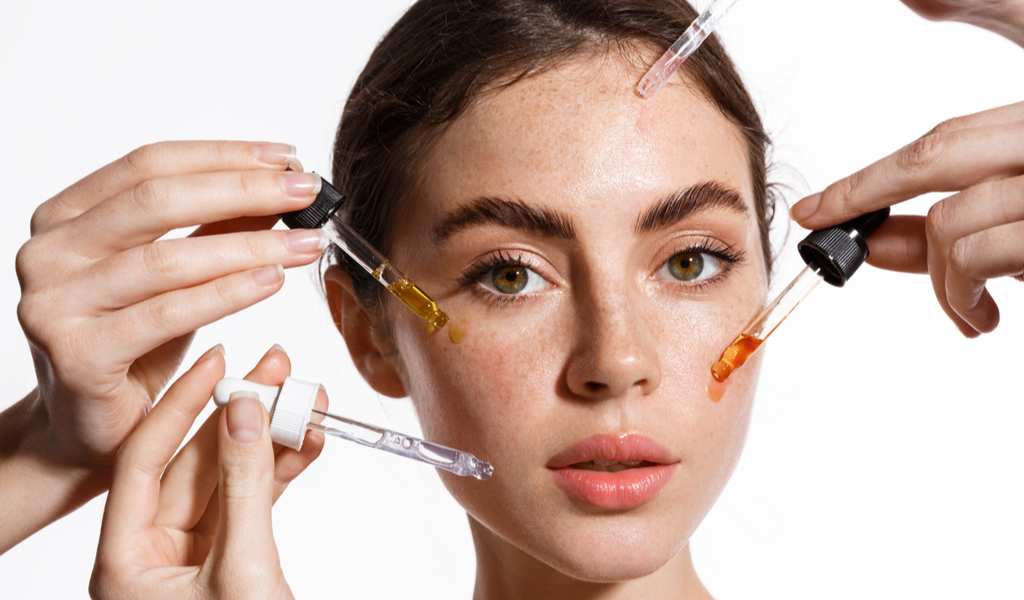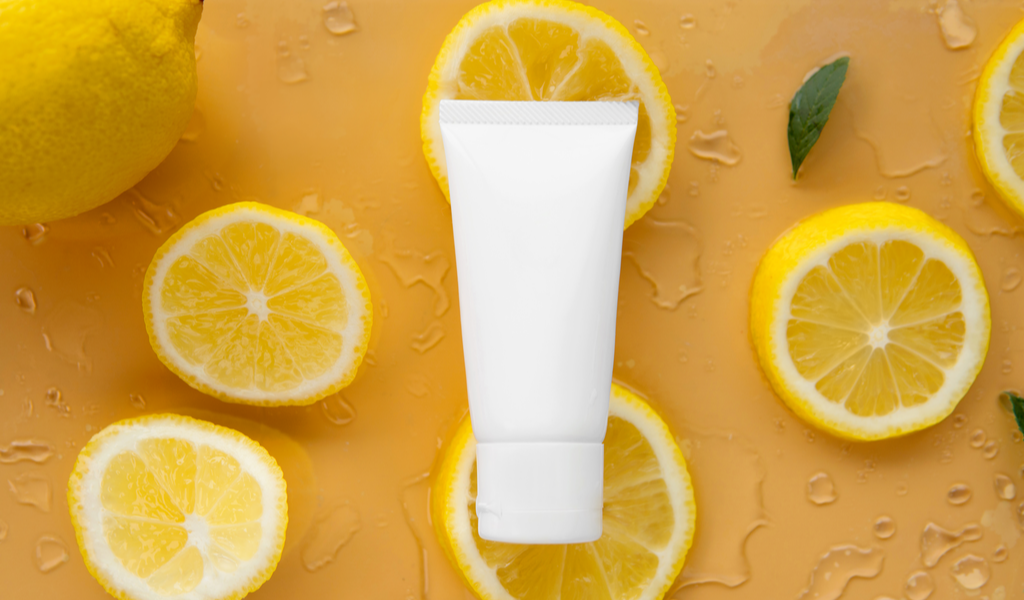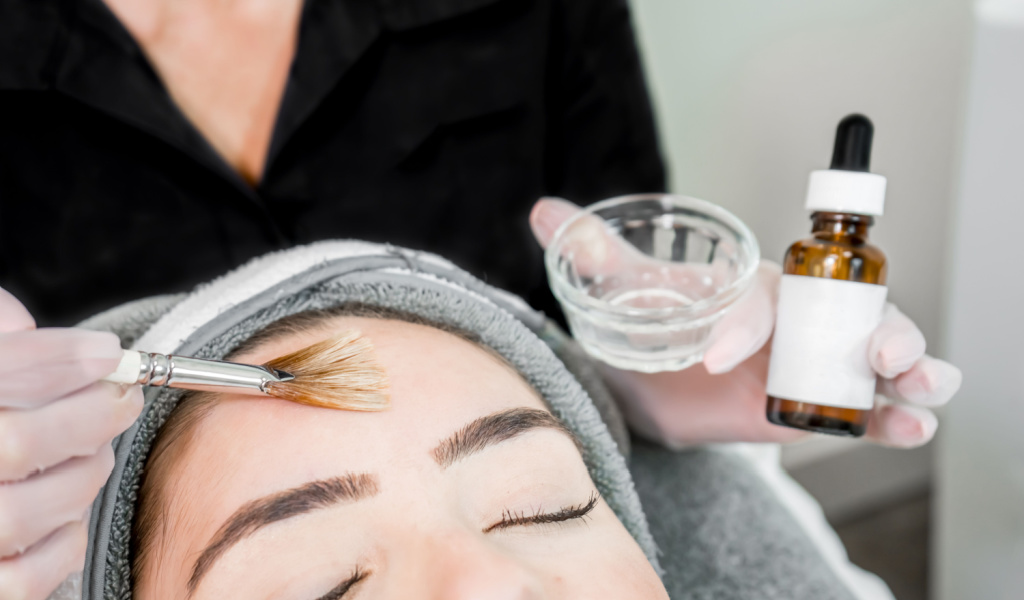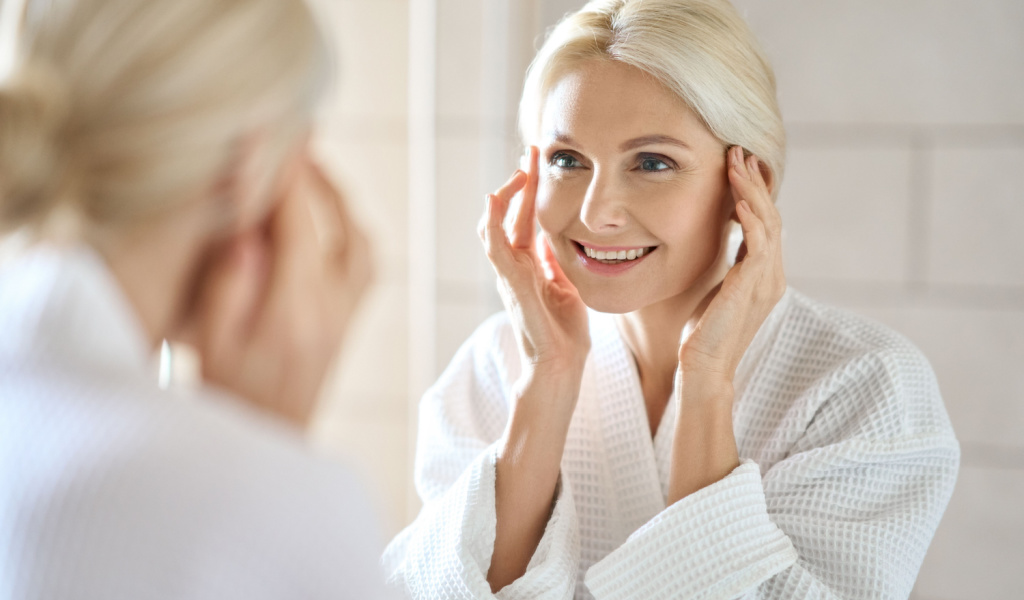There’s no magic formula when it comes to skincare, but there are certain ingredients that you can look out for in the skincare products that will help make you look younger. The good news is that there are a number of over-the-counter products that can help you achieve this, but the bad news is that it will take some time before you see some real results.
However, with good knowledge about your skin and what works for you, as well as persistent usage and patience, you certainly can see the results you so wish for!

The first step of this process is to understand which skincare ingredients work for which problems. For instance,
For Fine Line & Wrinkles, Use Retinol & Vitamin C
Fine lines and wrinkles are one of the very first signs of aging that appear on your skin. Two ingredients that can help alleviate the issue are retinol and Vitamin C. Retinol is a retinoid that is derived from Vitamin A and helps make skin smoother by encouraging higher production of collagen. Tretinoin (Retin-A) is the prescription-strength version of this may be much harsher and cause the skin to dry out, therefore, it’s best to stick to OTC products unless prescribed by a dermatologist.
Vitamin C is also an ingredient that can help smooth out the skin and get rid of fine lines. It also helps prevent and relieve sun damage on the skin, which is also a cause of wrinkles on the skin.
For Sagging Skin, Use Peptides, Ceramides & AHAs
Collagen is one of the essential properties of your skin, and increasing its production will help your skin look younger. Peptides are amino acids that make up the proteins required by your skin, and collagen is one of the main proteins at play. Using skin care products that contain peptides can lead to firmer, younger-looking skin. This helps tighten the skin cells, preventing sagging, as well as repair and rebuild damaged cells.
Ceramides, which are fats or lipids found in skin cells, are another ingredient to look for in your daily moisturizer. They are essential in retaining the skin’s natural moisture as well as preventing germs from entering the body and are much cheaper than peptides too.
AHAs or alpha hydroxy acids are also another ingredient to look for in your skincare products if you feel that your skin is losing its firmness. It works by removing the top, dead layer of skin cells and increasing the thickness of the deeper layers of skin, which has a tightening effect.
For Uneven Skin Tone, Use Hydroquinone, AHAs, Retinoids, Vitamin C & Kojic Acid
Uneven skin tone can be caused by a number of different factors from pregnancy and menopause to sun damage. Hydroquinone, an over-the-counter drug can help get rid of age spots by bleaching your skin and fading dark spots. AHAs or alpha hydroxy acids are also great for removing uneven skin spots as it gets rid of the topmost layer of the skin and makes way for healthier skin cells.
Similarly, retinoids can also help in maintaining an even skin tone. There is some research to prove that Vitamin C can also help fade age spots and hyperpigmentation when used for a longer period of time. Kojic acid is a chemical that is often used in skin-whitening cosmetics, but it can also help alleviate the issue of uneven skin tone.
It is also important to make sure to wear sunscreen because exposure to sunlight can prevent them from working properly or even take you back to square one even if you do make some progress.
For Dull Skin, Use AHAs, Hyaluronic Acid, Polyglutamic Acid
AHAs can help give lackluster skin back its shine. Of all the alpha hydroxy acids, polyhydroxy acid is probably your best option, especially if you’re new to using it. It is an exfoliating acid that brightens and hydrates your skin. They are also the least likely of all AHAs to irritate your skin. However, if you are up to trying stronger AHAs, you can opt for something with glycolic acids.
Hyaluronic acid is well-known for its moisturizing properties. It is a humectant that can hold 1,000 times its weight in water, which means it can help hydrate the skin and prevent loss of moisture. Polyglutamic acid, on the other hand, helps your skin absorb moisture. Many arguments have been made about which is better, but there’s no rule that says you have to use either or!

How to Use Skin Care Products with Anti-Aging Ingredients?
Always do a patch test on your skin, either behind your ears or on the back of your hand, before using a skincare product that you have never used before. If your skin care products irritate your skin, try something else. You can also talk to a dermatologist if you have trouble figuring out what products work best with your skin.
A good routine to follow would be to use a product with vitamin C in the morning, followed by sunscreen, and then makeup. And make sure to moisturize your skin daily, especially if you tend to have dry skin, to make sure it looks soft, supple, and youthful. At night time, use a product with retinol to help build collagen and reduce signs of aging. Retinol products are typically recommended to be used at night because sunlight is said to stop it from working properly.
Certain over-the-counter products only come in one strength whereas others may have different levels of the active ingredient. Something like retinol could dry or irritate your skin, so make sure to start with a product that has the lowest strength before gradually moving to something a bit stronger.
Some Parting Words of Advice
While using the right skincare products is important in maintaining youthful skin, it is also important to establish healthy lifestyle habits. Cosmetics alone will not help you slow down the effects of aging.
For instance, what you put into your body is as important, or even more so, than what you put on it. A healthy, balanced diet is absolutely crucial to a healthy body and mind, and this includes your skin as well. Apart from this, you should also make sure to exercise regularly and be physically active. Finally, make sure to take up activities that help you relax as stress and anxiety can also cause negative effects on your skin!



